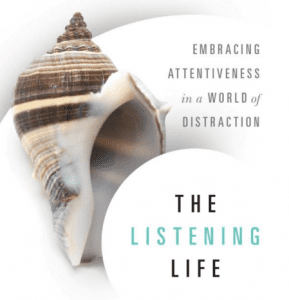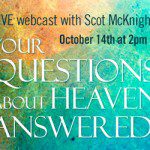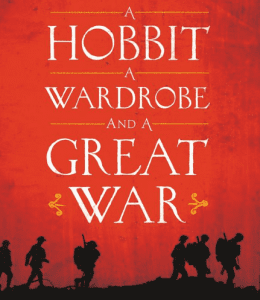Every year we choose Books of the Year for the Jesus Creed readers, and this year’s choices are a bumper crop — but also see the note at the end of this post. We sample books in a variety of areas. I hope you enjoy our choices.
Book of the Year
 David Swartz, The Moral Minority: The Evangelical Left in an Age of Conservatism. Swartz unveils a history largely ignored, a history of a movement that has a decisive impact on the church today, and which is (so I think) destined to have a bigger impact in the next two decades. Exceptionally well researched; clear prose; focuses on people and their impact.
David Swartz, The Moral Minority: The Evangelical Left in an Age of Conservatism. Swartz unveils a history largely ignored, a history of a movement that has a decisive impact on the church today, and which is (so I think) destined to have a bigger impact in the next two decades. Exceptionally well researched; clear prose; focuses on people and their impact.
Honorable Mention
N.T. Wright, The Kingdom New Testament. Tom Wright’s translation of the New Testament is clear, accurate, and useful for all readers of the Bible.
Lauren Winner, Still: Notes on a Mid-Faith Crisis. There is a “story” to this memoir, one that moves from fragmentation to hope and to a new future.
Christian Smith, et al., Lost in Transition: The Dark Side of Emerging Adulthood. Smith again uses his mastery of the data to shed light on the moral and theological culture of a segment of our population in need of careful understanding. A book that needs to be read and used by parents and pastors and all college professors.
Deborah Feldman, Unorthodox: The Scandalous Rejection of Hasidic Roots. A girl’s journey outside an ultra-orthodox Jewish community in New York.
Theology
J. Walls, Purgatory: The Logic of Total Transformation. Walls did not convince me, but this book was a pleasurable journey through the history of how Christians have struggled with how Christians move from sinful conditions into the all glorious and holy presence of God.
Ross Clifford, Philip Johnson, The Cross is Not Enough: Living as Witnesses to the Resurrection. I hope this book will launch one study after another in resurrection theology. Excellent source for pastors and theologians.
Non-Fiction
Karen Spears Zacharias, A Silence of Mockingbirds: A Memoir of a Murder. Too close to her own home, Karen’s journalism skills turns this story into the a tragic tale of Karly.
Church
Graham Hill, Salt, Light and a City: Introducing Missional Ecclesiology. This is the most important book I have ever read on the church. Profound grasp of important theologians and an appeal to see how each theologian contributes to a missional ecclesiology.
T. Keller, Center Church: Doing Balanced, Gospel-Centered Ministry in Your City. This and the next book, A. Stanley, Deep & Wide: Creating Churches Unchurched People Love to Attend, will be the go-to books for pastors, one building a church through the lens of Reformed theology and culture-sensitive missional theology, and the other through the wisdom of a seeker-sensitive church guru and leader. Stanley’s theology has more theology than appears on the surface while Keller’s more wisdom than his focus on theology and culture might at first reveal. A banner year for pastors.
Church History
M.J. McClymond, G. McDermott, The Theology of Jonathan Edwards. Two experts — lifelong students of Edwards — have put together a massive tome that will be the go-to book for years ahead on the theology of Edwards. Readable and accessible.
Christian Life
T.M. Luhrmann, When God Talks Back: Understanding the American Evangelical Relationship with God. No book quite like this: a non-evangelical cultural anthropologist examines — out of sheer curiosity — what makes charismatics tick when it comes to how they talk to God and hear from God. A thorough and thick explanation of the experience of God.
Church and Society
James E. Atwood, America and Its Guns: A Theological Expose. An important, necessary, and largely-will-be-ignored book by an American church that daily becomes more and more complicit in a violence culture in which guns have become idolatrous and unquestioned.
Reference
The most significant new reference book I saw this year was the Reformation Commentary on Scripture, with volumes on Genesis 1-11 and Ezekiel, Daniel and Galatians, Ephesians.
But, I must also mention The Dictionary of the Old Testament Prophets, completing a magisterial set of dictionaries of use to all of us.
D.A. Hagner, The New Testament: A Historical and Theological Introduction.
Science and Faith
Two nice books on the general issue of science and the Christian faith. The Wonder of the Universe: Hints of God in Our Fine-Tuned World by Karl Giberson offers a description of the wonder of our universe and of the process of discovery that led to our modern understanding of the universe. In God and the Cosmos: Divine Activity in Space, Time and History Harry Lee Poe and Jimmy H. Davis address questions such as: Can a transcendent and personal God really act in the universe? and Can science help us answer this question? The answers are not what one might expect.
The interpretation of Genesis is always an issue in science and faith. A nice, short book by Pete Enns and Jared Byas, Genesis for Normal People, suggests that we need to learn to read the OT, and Genesis in particular, through ancient eyes.
I spent this year working on and reading more technical studies on the Sermon on the Mount and the apostle Paul, so my year of reading was not as broad as has been the case in some years. This list reflects my choices, but both Kris and RJS contributed to it (RJS chose the science-faith books). There are authors sitting on my desk, unread, which may well have to be added to this list… like Matthew Bates, The Hermeneutics of the Apostolic Proclamation, and Ephraim Radner, A Brutal Unity. But I can’t recommend what I haven’t read.











